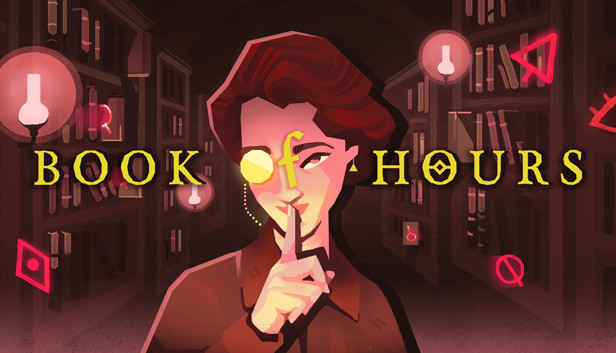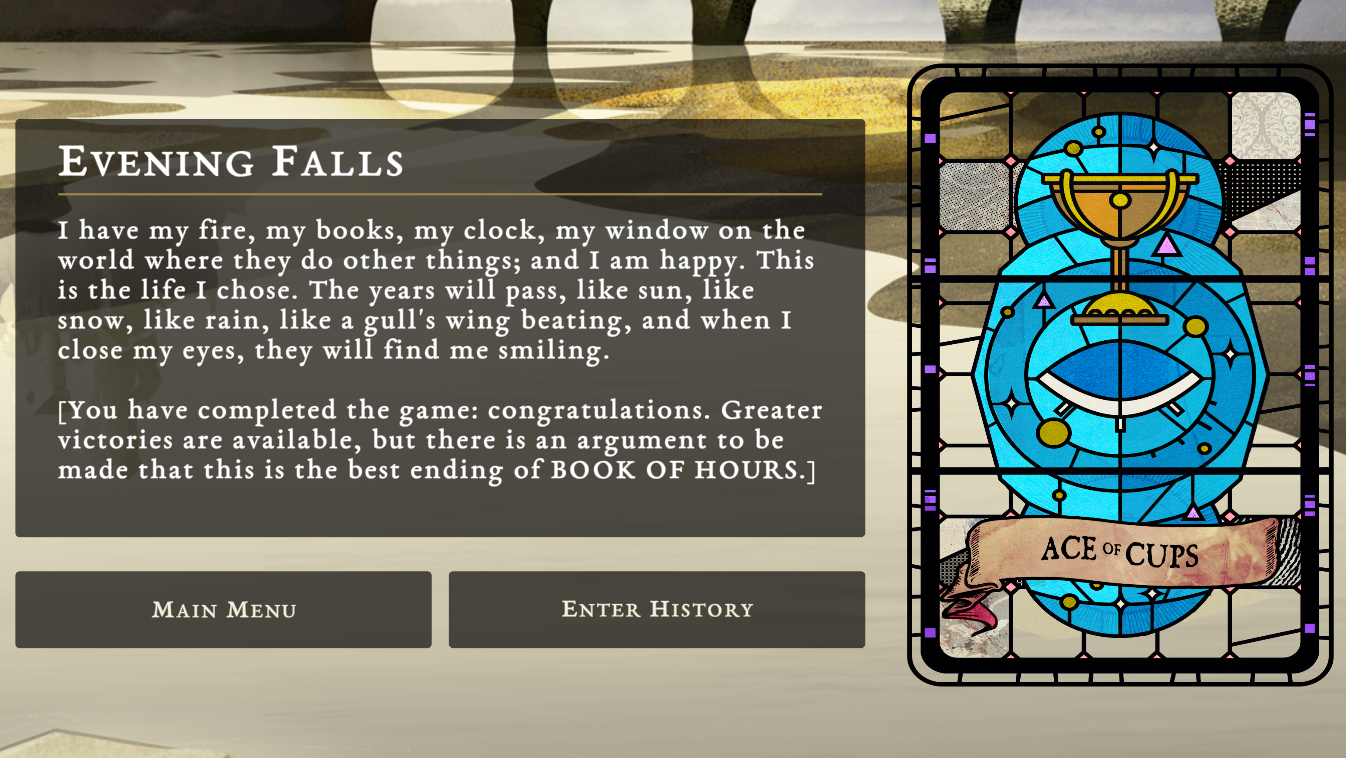

Book of Hours is the highly anticipated sequel to Cultist Simulator, a game that is near and dear to my heart for its incredible writing and exciting gameplay loop. Its sequel's fruit doesn't fall far from the tree, but it makes a few major changes that completely shake up the game— sometimes to great effect, and sometimes to its own detriment.
The major selling point of this game (as opposed to Cultist Simulator) is that your character, the Twelfth Librarian of the Curia of the Isle, does not seem to be able to die. This was a sticking point for a lot of people in the first game; Cultist Simulator is not an easy game to learn or to play, and juggling both of those things at the same time left many players with a feeling that the game was "too obtuse" or "just threw a bunch of bullshit at you for no reason." The sequel does away with all of that by presenting the occult depths of Cultist Simulator through the cozy and peaceful setting of Brancrug Isle, where the Suppression Bureau is aware of you and the benefits your job provides, all of your physical needs are met, and there aren't any villainous immortals trying to kill you— just ones trying to check out books from the Library.
This doesn't mean that the game is any less obtuse; if anything, it's even harder to figure out what you're supposed to do at any given time. What it does mean is that Book of Hours is a much more forgiving game than its predecessor, and you are welcome to make as many mistakes as you like on your way to the end. There are no untimely ends that will reset your progress, and there are essentially no "fake endings" where your characters gives up and stops pursuing the occult. This game is the entire game, and most things remain the same between playthroughs.
From the perspective of an avid Cultist Simulator fan, this is actually kind of disappointing. Most of the high-octane multitasking that make the first game thrilling has been stripped away, and the inability to actually fail tips the scales of the difficulty just a little bit too much. Even the organization element of Cultist Simulator, the giant table that served as map, inventory, and interface, has been replaced with the much more reasonable task of organizing the items and decorations in a very large house. All of the cards that you use to play the game are relegated to four drawers at the bottom of the screen, and these drawers can be instantly sorted at any time. The entire experience felt flattened; while the depth of the game's world was no less deep, it was possible to see everything there is to see from the very beginning, instead of gradually expanding the player's perception of the world over time.
All the same, I find myself compelled to keep playing. Writing is Weather Factory's greatest asset, and the style and substance of the text has even improved since Cultist Simulator took my literary heart by storm. This game reminds me of reading a traditional book in many ways. There is no failure state— only a failure to read, or perhaps a difficulty in understanding the richness of the world that the game presents. At the end of my twenty hour playthrough, I desire only to dive right back in, to uncover more secrets, to take more notes, to be a better Librarian to this bizarre and beautiful Library. In many ways, this is this game's greatest strength and biggest downfall; there are many game enthusiasts who love reading, and very few who love understanding.
Even with the extremely basic "easy" ending that I achieved, only 2% of players (at time of writing) seem to have completed the game. Less than a fifth have even unlocked the Librarian's own bedroom! Even with the relaxed pace of this game, it doesn't seem like any more people are inclined to delve into its secrets. It indicates to me that many of the people who complained about the difficulty of the first game were not actually interested in an easier version of the game. Rather, they seemed to be interested in playing a different game entirely. It makes me wonder who exactly this game is for— someone who loves the first game and needs more, or someone who was stonewalled by Cultist Simulator and needed a more laid-back experience. I find myself split down the middle on this one. I want to dislike this game for being a toned-down sequel to something I really care about, but I want to love this game for being a fresh and vibrant return to a beloved world.
Regardless, I applaud Weather Factory's efforts in making this game, and I look forward to where they decide to go in the future. Maybe, someday, that ARG will even start up again...
